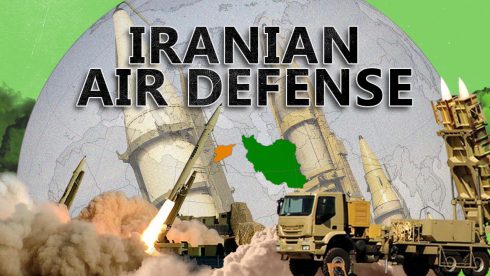China’s embassy in Israel on July 9 rejected a report claiming that it had transferred missile production equipment or air defense systems to Iran.
Iran’s air defense network was badly hit during the 12-day war with Israel last month. Commandos of the Mossad spy agency did most of the damage, attacking air defense systems from within Iranian territories with small drones and missiles.
Despite multiple large drones, the Israeli Air Force was able to gain aerial superiority over the western and central parts of the Islamic Republic, including the capital of Tehran.
Israel started the war on June 13, stating that its goal was to cripple Iran’s nuclear program. A ceasefire was suddenly announced on June 24, just two days after the United States joined the war by attacking three key nuclear sites in the Islamic Republic.
In a report published on July 7, the Middle East Eye claimed that China had delivered advanced air defenses systems to Iran in the weeks following the ceasefire with Israel.
Arab sources quoted in the article said that Arab states allied to the U.S. were aware of Iran’s efforts to reinforce its air defenses, and that the White House had also been briefed on the matter.
The sources did not specify how many anti-aircraft missiles China has delivered to Iran since the end of the war but confirmed that the Islamic Republic is paying for them with oil shipments. China is Iran’s largest oil customer, purchasing approximately 90% of the country’s exports.
While the Middle East Eye didn’t identify the air defenses systems allegedly supplied by China to Iran, defense analysts speculated that the HQ-9, a derivative of the Russian S-300, was the most likely option. Export versions of the system can engage targets with ranges from 125 to 250 kilometers.
Responding to the report, the Chinese embassy told Israel Hayom that Beijing “firmly opposes the proliferation of weapons of mass destruction and their delivery systems, and continuously strengthens its enforcement capabilities regarding non-proliferation.”
“China never exports weapons to countries engaged in warfare and maintains strict controls on the export of dual-use items. As a permanent member of the UN Security Council, China upholds a cautious and responsible approach to the export of military-related goods,” the embassy added.
The Middle East Eye’s report was not the only one that talked about growing defense cooperation between Iran and China after the Israeli war.
Several other recent reports suggested that Tehran was also seeking to purchase fighter jets from China, namely the Chengdu J-10. The jet can be armed with the PL-15 beyond-visual-range air-to-air missile, whose export version has a range of 145 kilometers.
The spokesman for China’s Ministry of National Defense, commenting on reports that “several countries” were in discussions on the procurement of weapons, including the J-10, said on July 8 that Beijing was willing to “share the achievements of its equipment development with friendly countries.”
However, the spokesman, Jiang Bin, did not identify Iran or any of the other countries reportedly negotiating to buy the J-10.
In the end, there is still no evidence that Iran is boosting military cooperation with China. Such a cooperation would be extremely beneficial for Tehran, but the remarks made by the Chinese embassy in Israel indicate that Beijing has many reservations.
_______________________________________________________________________________________________________________________
SouthFront: Analysis and Intelligence
NOW hosted at southfront.press
Previously, SouthFront: Analysis and Intelligence was at southfront.org.
The .org domain name had been blocked by the US (NATO) (https://southfront.press/southfront-org-blocked-by-u-s-controlled-global-internet-supervisor/) globally, outlawed and without any explanation
Back before that, from 2013 to 2015, SouthFront: Analysis and Intelligence was at southfront.com






